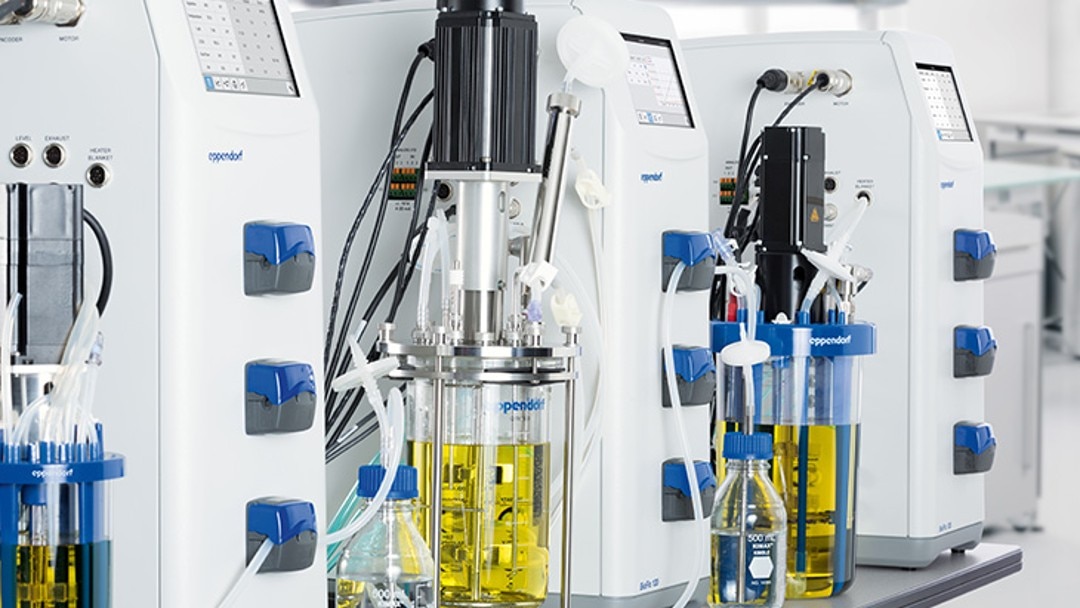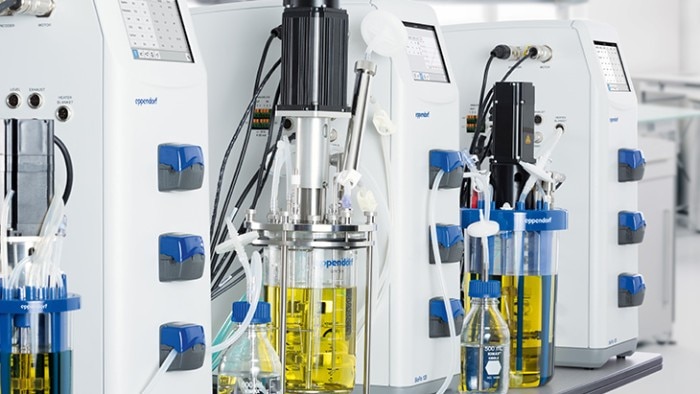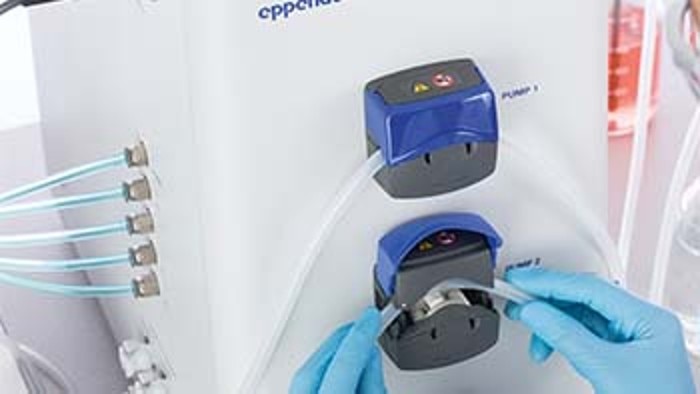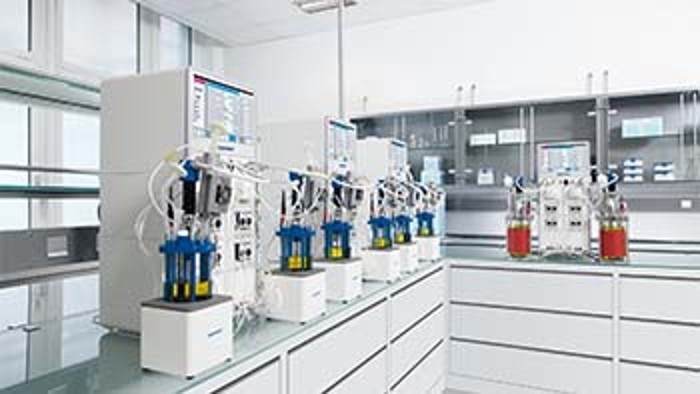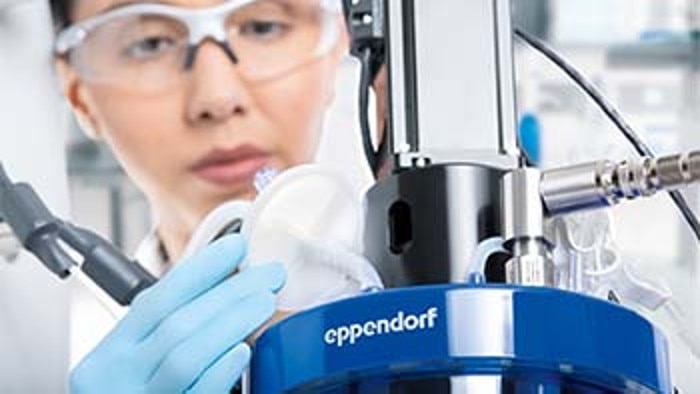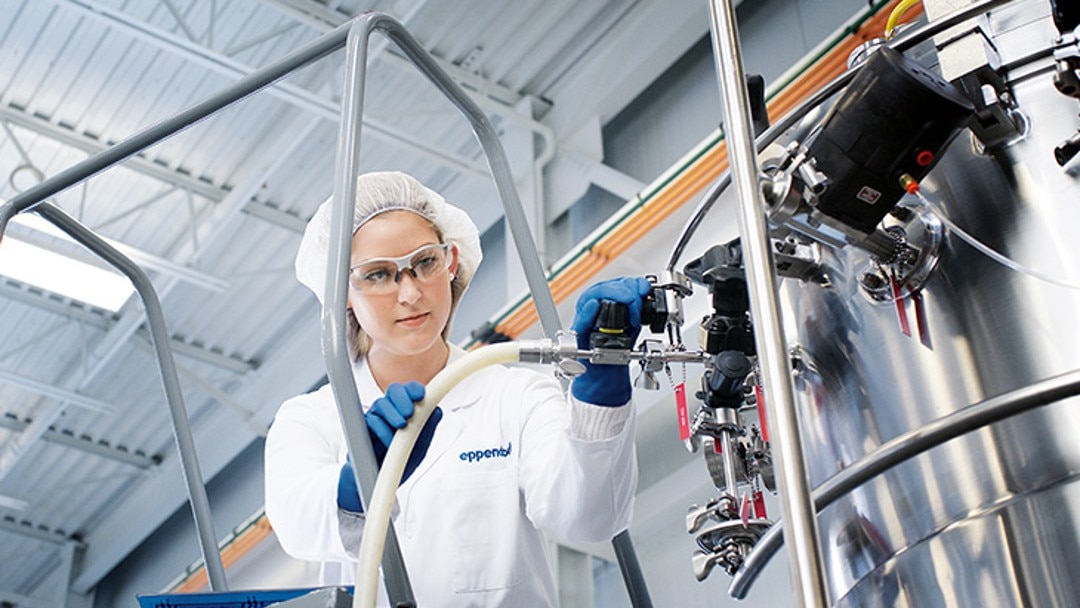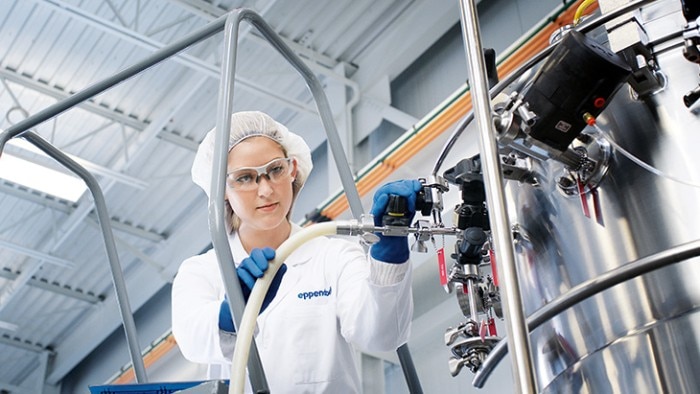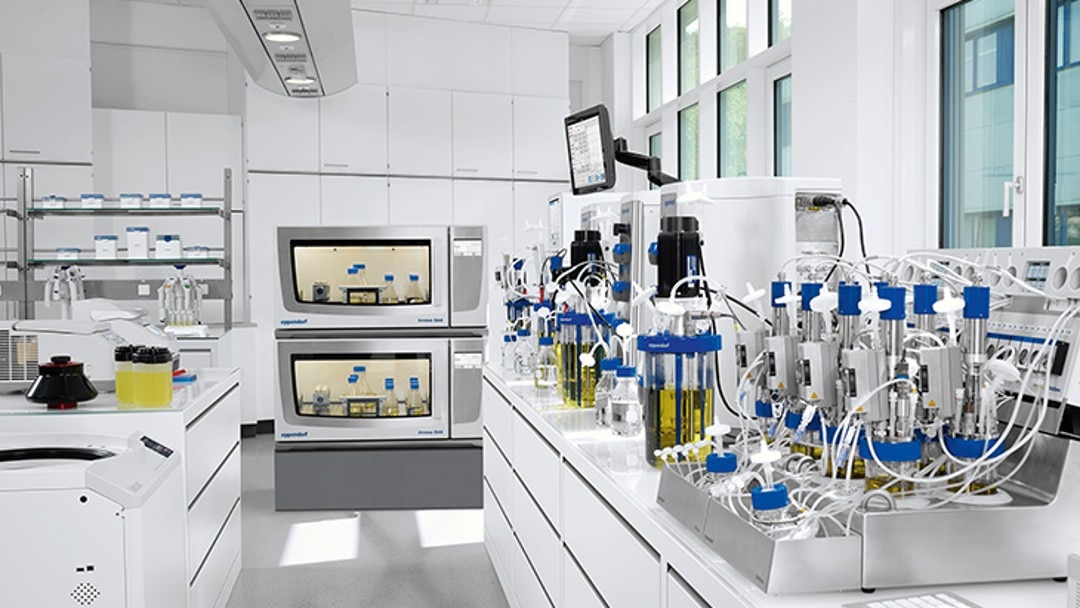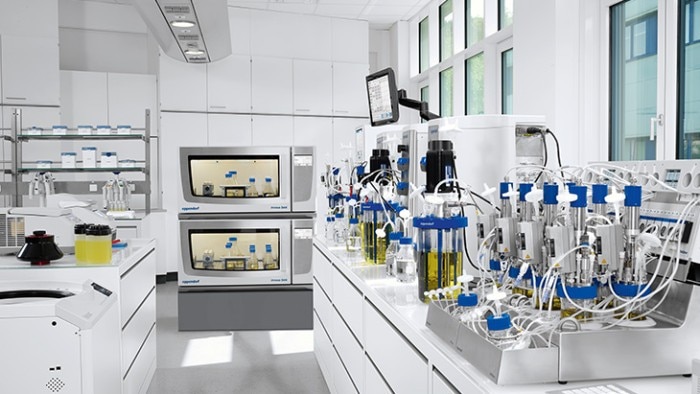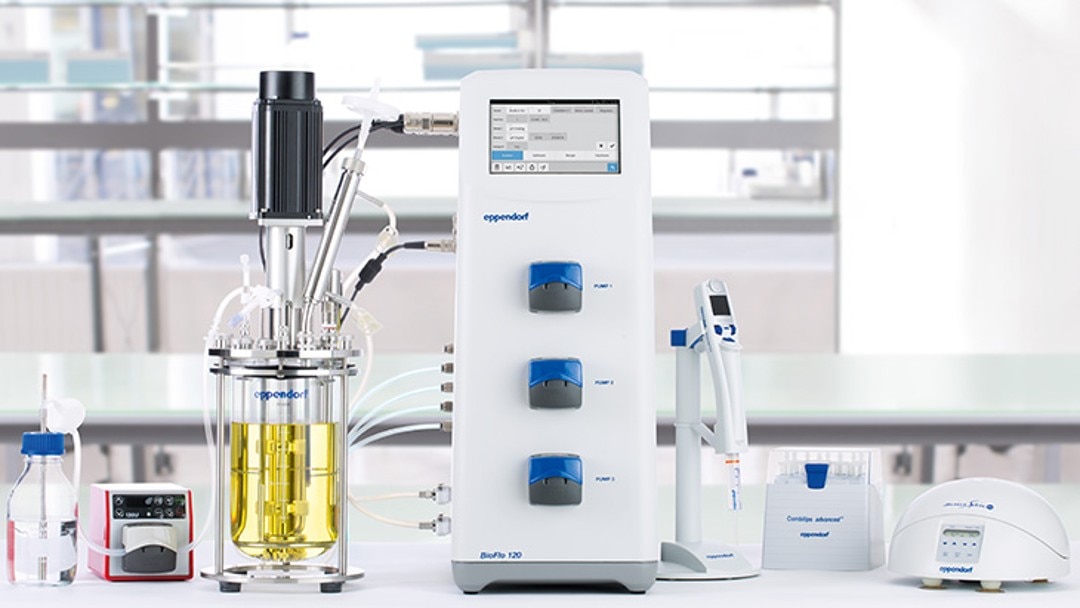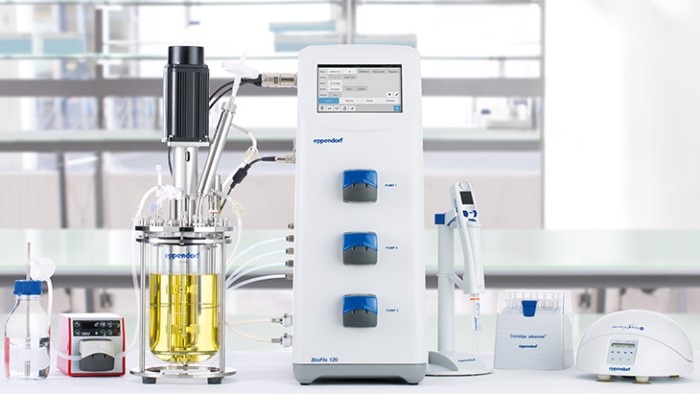메뉴
KR | KRW
KR | KRW
GMP info
Regarding suitability of Eppendorf bioprocess equipment in GMP-regulated applications, please reach out to your Eppendorf sales representative.
Bacterial Fermentation
Protein expression
Plasmid production
Food & nutrition
Other products
What is bacterial fermentation?
Bacterial fermentation is a metabolic process in which bacteria break down carbohydrates and amino acids to obtain energy for growth. Industrial fermentation is the process of using microbes to produce plasmids, enzymes, proteins, peptides, and other products on a large scale. Due to this, bacterial fermentation is used in many industrial settings including the manufacture of biopharmaceuticals, food and feed, chemicals, and biofuels. In the biopharmaceutical industry, microorganisms are a tool to produce therapeutics such as plasmids, proteins, peptides, and small molecules. Here, we will mainly talk about the applications of bacteria like Escherichia coli, and how to optimize E. coli production and other bacterial fermentations. However, bacteria are not the only microorganisms used to produce chemicals and therapeutics. Find out more about yeast fermentation and its applications in biopharma.
자세히 보기
간단히 보기
What properties make a bioreactor system suitable for microbial production?
Find out, which bioreactor features can support achieving high cell densities, simplify scale-up, and streamline bioprocess optimization.
자세히 보기
간단히 보기
Protein expression in E. coli
E. coli is a popular production host for industrial fermentation due to its high transformation efficiency, rapid growth and the ability to express proteins at high levels. Additionally, genetic manipulation of E.coli to produce strains with higher productivity has resulted in a wide range of specialized E. coli with mutations that enhance protein folding, transcriptional regulation, and production of eukaryotic proteins.
자세히 보기
간단히 보기
E. coli fermentation: Basic information
If you are just getting started with E. coli culture in bioreactors, you might look for information on how to set up an E. coli bioprocess. In this section you find guides, protocols, and information that help you to getting started.
자세히 보기
간단히 보기
The Auto Culture Mode reduces the complexity of bioprocess design
The Auto Culture Mode is a software feature of the bench-scale BioFlo® 120 bioreactor control station. It allows bioprocess beginners to achieve satisfactory bioprocess results in a short time and offers a starting point for further optimization. The Auto Culture mode is populated with setpoints and cascades tested by our applications development team. The user needs only select the vessel size and type from the list of available choices, and make standard preparations (sensor and pump calibration, vessel preparation) for the run.
자세히 보기
간단히 보기
BioBLU® f Single-Use Bioreactors – For more efficient process development
Better than glass: By minimizing setup times, eliminating cleaning procedures and reducing labor time and costs, single-use bioreactors can simplify fermentation. BioBLU® f Single-Use Bioreactors achieve the mass transfer and heat removal requirements of fermentation processes by
- Proven stirred-tank design
- Powerful overhead drives featuring Rushton-type impellers
- Smart solutions for cooling
The BioBLU® f portfolio covers working volumes from 65 mL to 3.75 L.
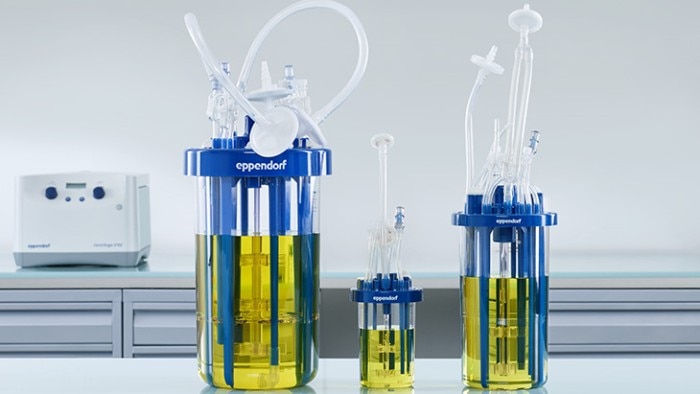
Plasmid production in bacteria
Plasmids are circular molecules of DNA that are found naturally occurring in bacteria and can replicate independently of genomic DNA. Plasmid DNA serves an essential role in bioprocessing - particularly for biopharmaceutical applications – as it is involved in the production of recombinant proteins and viral vectors.
자세히 보기
간단히 보기
Fermentation scale-up
To successfully produce biopharmaceuticals in a competitive market, fermentation processes must be effectively scaled up from small-scale to industrial production. However, it can be challenging to increase the working volume in an easy and cost-effective manner. Larger batches, varying process parameters, and different vessel properties can all result in unexpected problems that greatly impact culture performance. Check out our bioprocess scale-up page to understand how you can improve your scaling up process.
자세히 보기
간단히 보기
Eppendorf bioreactor systems for fermentation scale-up
Fermentation scale-up from 1 L to 100 L
Scalable from 60 mL to 2,400 L, there are a wide range of bioreactors available to help you scale-up from the bench to industrial production. In our application note we describe the use of three different fermentation systems to successfully scale-up an E. coli fermentation from small scale to pilot scale. First, we investigated engineering parameters critical for scaling up fermentation processes, such as vessel and impeller geometry, oxygen transfer rate, power number, and impeller power consumption per volume. Then we utilized these data to scale-up an E. coli process from 1 L to 100 L following the constant P/V scale-up strategy.
자세히 보기
간단히 보기
The Eppendorf range of bioreactor systems
- Small-scale: DASbox® Mini Bioreactor System and DASGIP® Parallel Bioreactor Systems
- Bench-scale: SciVario® twin , BioFlo® 120 , BioFlo® 320
- Pilot/production-scale: BioFlo® 510/CelliGen 510 , BioFlo® 610 , BioFlo® Pro
자세히 보기
간단히 보기
Bioprocess optimization is required to maximize plasmid yields. Find out, how we used a DASbox® Mini Bioreactor System to compare the plasmid yields in batch and fed-batch processes and to analyze the optimal harvest time point for each case.
자세히 보기
간단히 보기
Plasmid production comprises different workflow steps, including vector and strain selection, inoculum preparation in shake flasks, plasmid production in bioreactors, harvesting, and purification. Get expert advice for the optimization of plasmid production in shake flasks and bioreactors.
자세히 보기
간단히 보기
Food, nutrition, and human health
Fermented foods have been a part of the human diet for thousands of years and were initially produced as a way to preserve foods and improve flavor. Today, many people are now turning to fermented foods to improve their lifestyles since they are associated with a variety of health benefits, including improved digestion and immunity, due to the presence of beneficial bacteria known as probiotics. Culturing microbiome bacteria requires specific growth conditions that mimic the bacteria’s natural environment such as the gut or soil. This generally requires fine control of key parameters such as oxygen, pH, temperature and substrates. For example, in order to cultivate Lactobacilli and their natural fermentation by-products, bioreactors need to be able to reproduce the microaerobic conditions found in the gastrointestinal tract.
자세히 보기
간단히 보기
Other fermentation products and frequently used bacteria
Corynebacterium glutamicum
Corynebacterium glutamicum is an industrial microbe traditionally used to produce amino acids for the food and feed industries. Advances in our genetic understanding and capabilities have enabled the creation of a versatile and effective platform to produce recombinant proteins and small molecules. Find out more!
- Application Note: Learn how Eppendorf DASGIP® Parallel Bioreactor System was used to produce chemicals from engineered C. glutamicum strains
- Application Note: Learn how a flexible design of both hardware and software was used for scale-down model development
자세히 보기
간단히 보기
Streptococcus sp.
Streptococcal fermentation is one method used to manufacture hyaluronic acid (HA), a key molecule in a variety of medical, pharmaceutical, nutritional and cosmetic applications.
- Application Note: How to set up a microbial hyaluronic acid production process
자세히 보기
간단히 보기
Clostridium sp.
Clostridium species produce a wide range of products for use in various industries including Botox, ethanol, acetone, and butanol. Due to their production of sustainable biofuels, Clostridium species are of particular interest for the biofuels industry.
- Application Note: Monitor the redox potential of anaerobic fermentation of C. beijerinckii using the BioFlo® 120 control station
- Application Note: How to scale-up your anaerobic fermentation from 250 mL to 1 L using BioBLU® f Single-Use Vessels
자세히 보기
간단히 보기
Lactobacillus sp.
Lactic acid bacteria (LAB) are known for their production of lactic acid in food and beverages. One of the most widely utilized probiotics, LAB is also regularly used to treat human health issues like diarrhea, vaginal infections, and skin diseases like eczema.
- Application Note: Learn how a parallel bioreactor system was used for optimizing Lactobacillus sp. fermentation
- Application Note: Learn how you could mimic the natural physiology of the human gut for microbiome and probiotic study and production.
자세히 보기
간단히 보기
Bacillus sp.
Bacillus species are used in many medical, pharmaceutical, agricultural, and industrial processes that take advantage of their ability to produce a host of enzymes, antibiotics, and other metabolites.
- Application Note: Scale-up of polyhydroxbutyrate production from lignocellulosic hydrolysates by Bacillus sacchari fermentation
자세히 보기
간단히 보기

